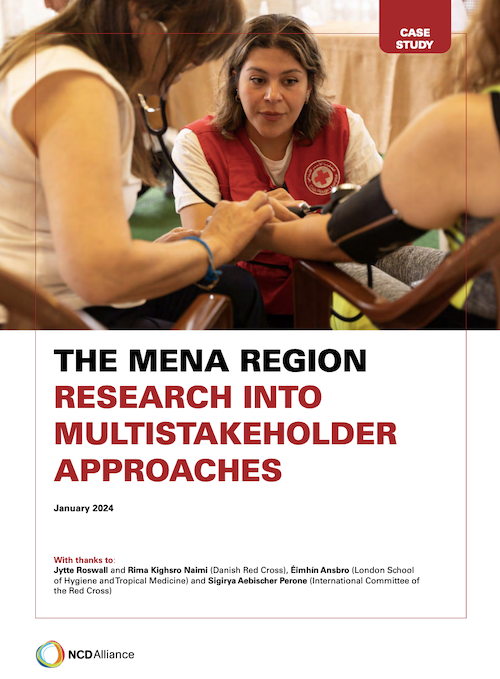World Health Organization (WHO)
Second general meeting of the WHO Global Coordination Mechanism on the Prevention and Control of Noncommunicable Diseases: meeting report, 23-25 April 2025
Report
11 Aug 2025
NCD Alliance, The Leona M. and Harry B. Helmsley Charitable Trust
21 Feb 2024

In 2011, the Syrian conflict began. It has significantly raised awareness and action on NCDs in humanitarian settings, both in the MENA (Middle East and North Africa) region and globally – for example, World Health Organization NCD Kits were particularly designed for the region and were first used here in 2017. The conflict has led to a huge movement of people: over 12 million Syrians were estimated to be forcibly displaced at the end of 2022: 6.8 million within Syria itself and 5.4 million in neighbouring countries.
Of these 5.4 million displaced people, Lebanon is hosting almost a million. As a country of fewer than 7 million people, this is the highest ratio of refugees to host community in the world. The 15% increase in the country’s population has placed enormous pressure on its infrastructure and public services, including the health system, and led to the influx of humanitarian actors to support the response. Over the last three years this has been compounded by COVID-19, by the explosion in the port of Beirut in August 2020, and by the devastating socioeconomic crisis that has impoverished much of the population.
This case study looks at ways in which research is being used by Partnering for Change implementing partners. The research builds on the understanding that NCD care in Lebanon is complex, with a heavy burden of treatment experienced by families and people living with NCDs, that social workers play a key role in helping people to navigate the system, and that there is an urgent need for additional support for people living with NCDs to be enabled to better self- manage their conditions.